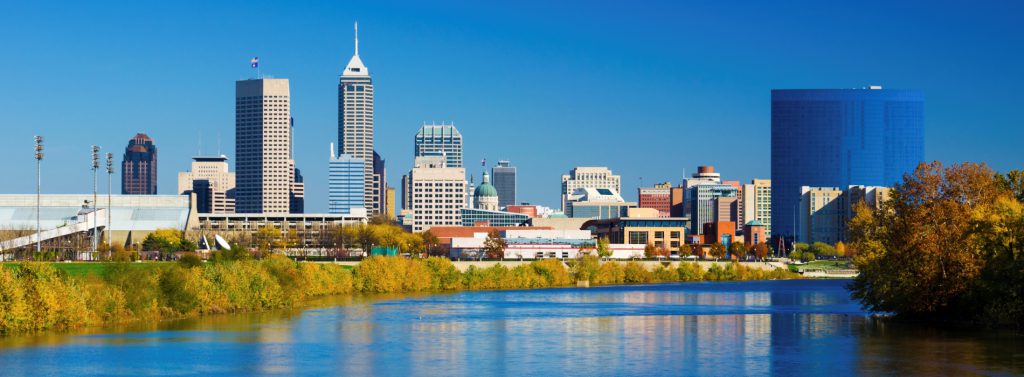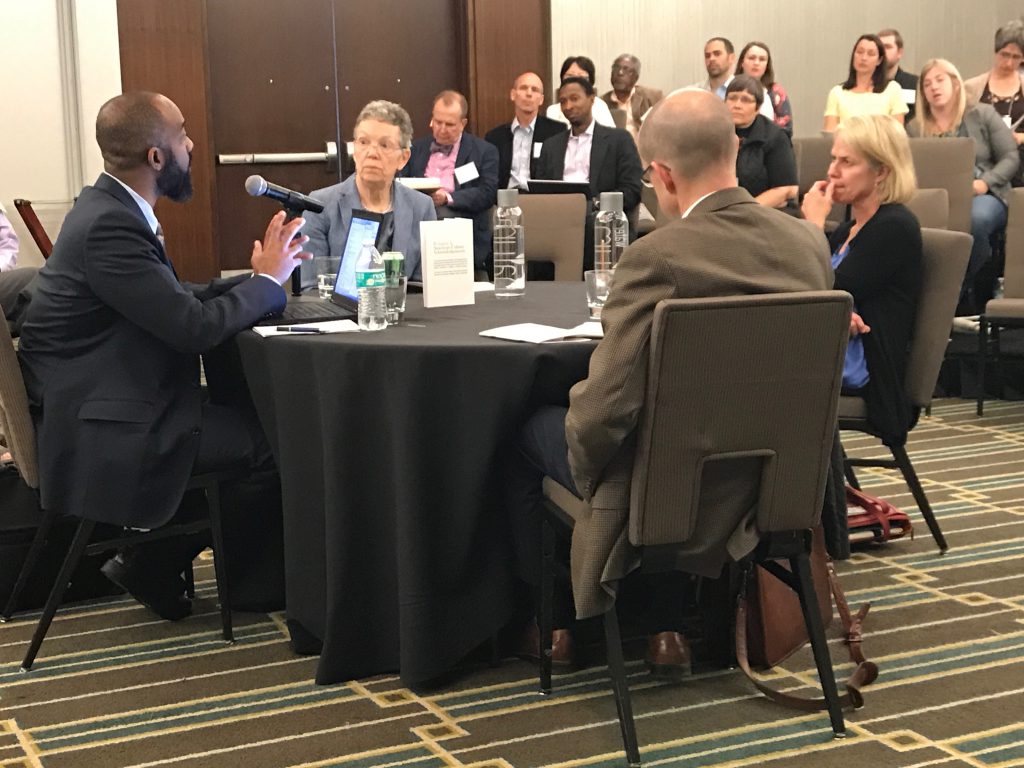
Registration is now open!
To register, click the blue box below:
Mark your calendars and get prepared for an exciting weekend you won’t forget! 8th Biennial Conference on Religion and American Culture will be held in Indianapolis at The Westin Hotel, June 13th-16th, 2024 . Please keep in mind that this is a different weekend than previous Biennials. Located in the heart of downtown Indianapolis, The Westin is near the city’s top attractions. Thankfully, Lilly Endowment has once again generously agreed to help underwrite hotel rooms. Participants receive a $100 discount per night upon checkout following the conference (available on a first come first served basis). The conference rate is $199/night before the discount.
Here’s what folks have said about our last Biennial Conference:
“It was one of the most stimulating, welcoming, and intellectually engaging conferences I have attended in a long long time. THANK YOU so much for creating this space of transformation.”
The purpose of the Biennial Conferences on Religion and American Culture is to bring together scholars in the humanities, social sciences, seminaries, and professional schools who study religion in the Americas in order to discuss the big questions and themes we face in our fields, classrooms, and the broader society.
Every two years, the Center holds a conference on religion and American culture featuring the work of nationally recognized scholars speaking on a wide variety of subjects. Programs include both presentations and roundtable discussions. Conversation is, in fact, the key to our biennial meetings. As in years past, panelists will sit in the center of the room at a round table. Around them will be risers on all sides for attendees, thus promoting a sense that we’re all gathered around the table together. This promotes more face-to-face conversation rather than the traditional “sage on the stage” presentation followed by a few questions that not everyone can hear. We have new ideas to push our already non-traditional meeting even further!
We hope to see you in June at the 8th Biennial!

Conference Program Details
Session 1
Religious Studies Divide: People and Categories
Many humanities programs are facing existential threats, including religious studies. But beyond that there was already a developing rift between works that focus on the “lived religion” of people and works that focus on religion as a socially, even academically, constructed category. What are the stakes here? What is the core of the disagreement? In a field where theory has always been important, this debate at this moment seems especially resonant.
- Tazeen Ali (Washington University in St. Louis)
- Joseph Blankholm (UC Santa Barbra)
- Kathryn Lofton (Yale University)
Session 2
Religion and Non-Religion
In a moment when the traditional boundaries between religion, non-religion, and the secular continue to be blurred, the time is ripe to return to these categories, examine emerging theorists and theorizations, and explore their uses and descriptive capacities. The panel will explore their many and varied meanings and how different constructions of religion and non-religion help us narrate contemporary phenomena. How does attention to religion and non-religion help us theorize what social scientists have identified as the “losing of religion,” as well as reconfigure traditional and new religious movements? How do the categories of non-religion and non-belief help thinkers of religion better understand such things as the current white evangelical revival, discourses on race and Afro-pessimism, and rising political partisanship?
- J. Kameron Carter (University of California-Irvine)
- Jacqui Frost (Purdue University)
- Jaime Kucinskas (Hamilton College)
Session 3
Juneteenth as Religion (a special event at the Eiteljorg Museum)
- Speaker: Keri Day (Princeton Theological Seminary)
Session 4
Religion, Material Culture, and Museums
The importance of material culture to religion is now widely acknowledged, even accepted. Over the past decade, especially after recent philanthropic investment in the area, museum directors and curators have grappled with how to present faith and practice for a diverse public. This interactive forum session seeks to address how different religions are portrayed, and the nature of religious objects when they are also artifacts—or seemingly mundane objects that were religious for a different culture. How does a material object convey a culture’s values, both past and present? What ethical issues are at play in this unique educational setting?
- Erika Gault (Smithsonian National Museum of African American History and Culture)
- Sally Promey (Yale University)
- Lois Silverman (Indiana University Indianapolis)
- Marci Reavan (Acts of Faith)
Session 5
Latinx Religious Diversity
In many of our syllabi, Latinx religion is solely discussed in terms of Catholicism and Pentecostalism. What are we missing with this oversimplification? What are the variations within those categories, as well as altogether different faiths? How does the Latinx experience in North American shape the diversity of these faiths, and vice versa?
- Joao Chaves (Baylor University)
- Gerardo Marti (Davidson College)
- Daisy Vargas (University of Arizona)
Session 6
Religion and Disability
Religious communities have often been at the forefront of providing services and support for people with varying health, social, and economic needs. However, this attention to difference has not always translated to a thoughtful encounter with the ways in which ability operates differently regarding neurodiversity, varied abilities, and access. Considering questions of access that focus on embodied religious practice and embodiment more broadly, how do the contested concepts of “disability” and “religion” provide a novel space to think critically about inclusion, visibility, and access? How have theories around embodiment, ability, and activism opened new arenas for protest and belonging—particularly with regard to religious spaces?
- Erik Carter (Baylor University)
- Andrew Walker-Cornetta (Georgia State)
- TBA
Session 7
When Academic Terms Go Popular
Critical Race Theory. White Christian Nationalism. The “nones”. Spiritual but not religious. Whiteness. Intersectionality. Climate change. Culture Wars. These are terms that were initiated in scholarly work but have become part of the common lexicon in today’s news and politics. What happens when the academy loses control of terminology that is then politicized, racialized, or gendered in popular conversation? How should those working in religion respond, and how should we think about our work when this popularization is always a possibility?
- Anthea Butler (Penn State University)
- Mira Sucharov (Carleton University)
- Carlton Waterhouse (Howard University)
Session 8
Religion and Politics
2024 is an election year with multiple local, state, national, and even global implications. What do you think will be the role of religion in it? Is it changing, or is it like what we’ve seen in the past? If it is different, is it a difference of kind or degree?
- Jamil W. Drake (Yale University)
- Rebecca Sager (Loyola Marymount University)
- Elizabeth Shakman Hurd (Northwestern University)
- Proceedings from the biennial conferences are available here.
